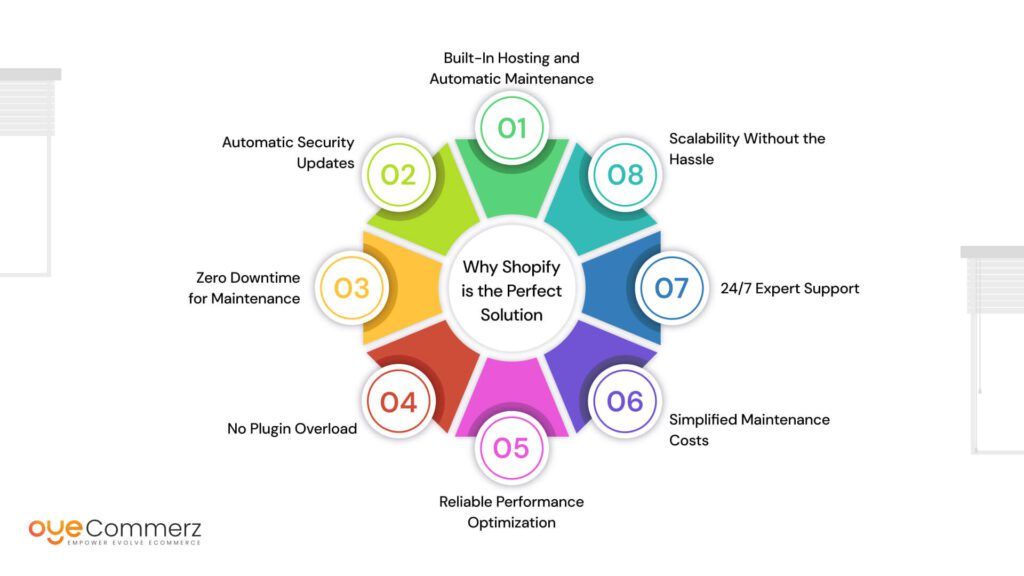In the constantly changing sphere of online retail, choosing the right platform is vital for your brand’s success. If you’re currently using WP and thinking about a migration to an alternative, you’re not by yourself. Numerous businesses are switching to take advantage of Shopify’s powerful tools, user-friendliness, and scalability. This guide will take you through the process of migrating from WP to this platform effortlessly, making sure that you achieve your online retail potential.
Why Transition from WordPress to Shopify?
Ahead of diving into the migration procedure, it’s important to realize why this shift can be advantageous for your eCommerce business:
User-Friendly Interface: Shopify features an straightforward interface that makes easier store management, enabling for non-technical users.
Flexibility: As your business develops, Shopify can accommodate increased traffic and sales without affecting efficiency.
All-in-One Solutions: Shopify includes built-in resources for SEO, analytics, payment processing, and additional functionalities, eliminating the need for numerous plugins.
Robust Protection: With Shopify, you get access to strong security features that safeguard sensitive customer information.
Steps for a Seamless Migration
Migrating your online store from WP to Shopify requires key actions.
Here’s how to facilitate a smooth transition:
Outline Your Migration Strategy
Begin by drafting your migration blueprint. Identify which elements of your existing site you want to transfer, such as:
Inventory information
User details
Purchase logs
Articles
Pick the Appropriate Migration Package
Depending on your needs, select a migration plan that fits your business. Migration experts delivers multiple options:
Basic Migration Package: Suitable for small stores with minimal products.
Regular Option: Appropriate for growing businesses with intermediate requirements.
Advanced Plan: Perfect for high-volume stores demanding broad customization.
Backup Your Data
Prior to starting the migration, ensure that you have a full copy of your WordPress site. This task is essential in situations where anything goes wrong during the migration.
Export Your Information from WordPress
Leverage tools or custom scripts to export critical content from your WP site:
Items
Customers
Orders
Content pieces
Import Data into Shopify
When you have your content exported, employ Shopify’s built-in features or external apps to upload your content into your new store. Confirm that all information is properly structured and arranged.
Customize Your Shopify Site
Following migrating information, tailor your Shopify platform’s design to match with your business goals. Think about working with a developer if you require advanced customization.
Configure Payment Gateways and Delivery Settings
Arrange transaction methods and shipping settings Shopify launch checklist in Shopify to facilitate a seamless checkout experience for customers.
Adopt SEO Guidelines
To keep your SEO performance during the change:
Use 301 link updates from existing URLs to new ones.
Update meta tags.
Optimize media and copy for better ranking.
Test Your Migrated Store
Prior to going live, extensively test your new site. Check for any errors, Shopify data backup tools payment processing issues, or missing data.
Go Live Your Site
Once everything is in order, it’s time to go live! Inform the update to your clients and motivate them to explore the updated features of your Shopify store.
Post-Migration Guidance
Following launching your updated store, ongoing assistance is key. Think about partnering with experts who can assist with:
Site maintenance
Promotional campaigns
Enhancing features
Conclusion
Migrating from WP to this platform can be a crucial step for your online retail. By following this guide and utilizing tools like those offered by dedicated providers, you can guarantee a smooth transition that improves your online presence. Embrace the shift and unlock the potential of Shopify today!

Comments on “Unlocking eCommerce Growth: The Definitive Guide to Seamless WP to eCommerce Migration”